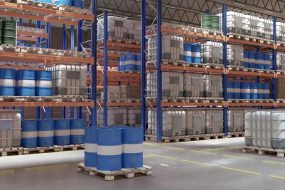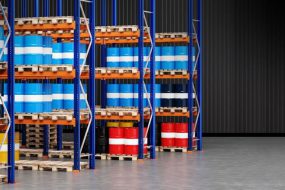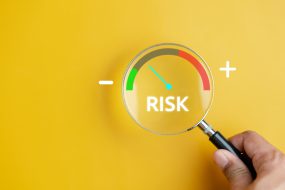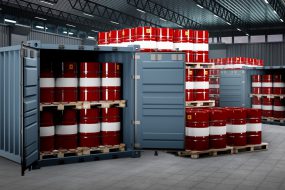Not to be dramatic, but shipping dangerous goods isn’t like sending a t-shirt order from your online store. We’re talking chemicals, batteries, flammable liquids – the kind of cargo that really shouldn’t end up leaking, exploding, or getting lost in transit.
Whether you’re a supply chain pro or just started running an e-comm business with more complicated stock than scented candles, getting this part right isn’t optional. It’s the difference between “efficient logistics” and “headline news”.
Here’s your straightforward, jargon-free (well, mostly) playbook on how to ship hazardous cargo the right way.
Related reading: Struggling with cold chain gaps? Smarter logistics is the fix
First up: What counts as dangerous goods?
Anything that could harm people, property, or the environment if it’s not handled correctly. That includes:
- Lithium batteries
- Paints and solvents
- Gas cylinders
- Fireworks
- Certain cleaning products
- Biological agents (definitely not your everyday parcel)
If it sounds risky, it probably falls under the “dangerous goods” category. And that means one thing: rules, and lots of them.
Meet the rule-makers (a.k.a. global regulators)
Depending on how you’re shipping your goods – air, sea, road, or rail – different global organisations are calling the shots. Each has its own set of requirements forshipping dangerous goods, and understanding those is step one if you want to stay compliant (and avoid fines). Here’s a quick breakdown:
- IATA (International Air Transport Association): makes the rules for shipping hazardous goods by air.
- IMO (International Maritime Organization): handles sea freight via the IMDG (International Maritime Dangerous Goods) Code.
- UNECE (United Nations Economic Commission for Europe) oversees road and rail rules in Europe through ADR and RID.
If you’re thinking, “That sounds like a lot of paperwork,” you’re absolutely right. But that’s where best practices come in.
Related reading:Shipping hazardous goods internationally? Here’s what you must get right.
Best Practices: How to not mess this up
1. Train like a pro
Gettinghazardous cargo shippingright means knowing what you’re handling, how to classify it, and how to pack it properly. And that starts with proper training – no exceptions. Everyone involved should be certified, updated regularly, and familiar with the appearance of a lithium battery on a manifest.
2. Get your paperwork perfect
Classify everything properly. Label it correctly. Fill out your Safety Data Sheet (SDS). One typo in the documentation can delay your shipment or cause it to be flagged – or worse, result in a fine. No one wants that.
3. Pack it like your life depends on it
Because, sometimes, it does. Packaging needs to be tough, secure, and specifically made for the type of material you’re shipping. Labels should be big, clear, and unmissable. The goal is no leaks, no questions, no guessing.
4. Let tech do the heavy lifting
Logistics is getting smarter, and that includes hazardous goods. We’re talking blockchain for traceability, IoT (Internet of Things) sensors for real-time monitoring, and AI that helps plot the safest, fastest routes. If you’re still relying on spreadsheets and gut feelings, it’s time to upgrade.
Related reading:How to safely transport chemicals: the role of proper packing
Challenges? Of course. But they come with opportunities.
The multimodal puzzle
Shipping by land, then sea, then air? That’s a whole new level of complexity. Each mode has its own rules, so your job is to ensure seamless transitions without breaking any regulations. Tough? Yes. Impossible? Not with the right partners and systems.
The green pressure is real
Hazardous cargo and sustainability don’t exactly go hand in hand, but that doesn’t mean it’s hopeless. Brands are now finding ways to ship smarter: think biodegradable packaging, route optimisation to cut emissions, and recycling programs for returned goods.
Data = your new logistics superpower
Got data? Use it. Real-time insights help you identify delays, anticipate risks, and respond quickly when something goes wrong. And when you’re dealing with hazardous materials, speed is often the key.
Related reading:How to build a greener chemical logistics chain with eco-friendly transport
Key takeaway: Safe doesn’t mean slow
Shipping dangerous goods might feel like a minefield, but it’s 100% manageable with the right know-how and mindset. Get your team trained, your docs flawless, your packaging secure, and your tech stack smart.
The future ofdangerous goods shippingisn’t just about avoiding disasters – it’s about building agile, safe, and sustainable supply chains that can keep up with your business. Because at the end of the day, dangerous goods don’t have to be risky business.
Need a hand navigating the ins and outs of hazardous cargo shipping? Let’s chat – we’re here to help. Get in touch today.




